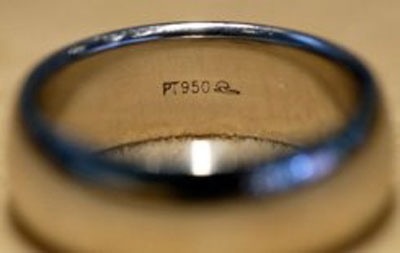A small French start-up company is selling a technology with a hint of alchemy: turning water into gold.
It does so by extracting from industrial waste water the last traces of any rare -- and increasingly valuable -- metal.
"We leave only a
microgramme per litre," according to Steve van Zutphen, a Dutchman who
founded Magpie Polymers last year with a fellow 30-year old Frenchman Etienne
Almoric. 
"It's the equivalent of a sugar lump in an Olympic swimming pool."
Magpie Polymers operates from slightly shabby premises at a factory at Saint-Pierre-les-Nemours 80 kilometres (50 miles) southeast of Paris.
But it is at the leading edge of technology with a procedure developed at the prestigious Ecole Polytechnique in 2007.
The process is based on the use of tiny pellets of plastic resin through which waste water is pumped. Gold, platinum, palladium and rhodium, the world's most precious metals, little by little stick to the pellets and are thus separated from the waste water.
A single litre of this patented resin can treat five to 10 cubic metres of waste water and recover 50 to 100 grammes of precious metal, equivalent to "3,000 to 5,000 euros ($3,900 to $6,500)," Almoric said.
Mobile phones, catalytic converters and countless other everyday products contain these precious metals.
But once they are scrapped, the problem lies in retrieving the particles of precious metals.
"What is complicated is that the amounts are infinitesimal, so hard to recover," according to Steve van Zutphen.
Once they have been separated and crushed some industrial waste products have to be dissolved with acid in water. Then the metals in the water have to be recovered whether they are valuable or not.
"There are many technologies to get metal from water that have existed since the 19th century. But there comes a moment when existing technologies are no longer effective or become too expensive," van Zutphen said.
The chief markets to which the two entrepreneurs are looking are the "refiners": specialists in the recovery of precious metals, such as British firm Johnson Matthey, the Anglo-French company Cookson-Clal and Boliden of Sweden.
But the technology could also be of interest to mining groups or large water treatment companies such as French Veolia or Suez Environnement.
The timing is good. The economic crisis has revived interest in gold, and thanks to rising demand for platinum and similar metals, combined with increasing shortages, prices have soared. As platinum mines become exhausted, half the metal used worldwide is already recycled.
Magpie's technology can also be used to leach out harmful metals such as lead, mercury, cobalt, copper and uranium.
"Obviously the amounts are much bigger. The problem is that nobody wants to pay for something that has no value," said Almoric.
Tougher environmental standards, which would further tighten the rules of waste recovery for businesses, could add further strength to the Magpie model.
The young start-up has already taken on six staff and hopes for a turnover of a nearly a million euros next year and 15 million euros in four years' time. It has just raised half a million euros from the Fonds Lorraine des Materiaux (51-percent owned by the Caisse des Depots-Region Lorraine, 49 percent by ArcelorMittal).
Magpie does not give the names of its chief clients but is already present in "France, England, Belgium and Switzerland" and soon in Germany and Spain.
VietNamNet/AFP


























